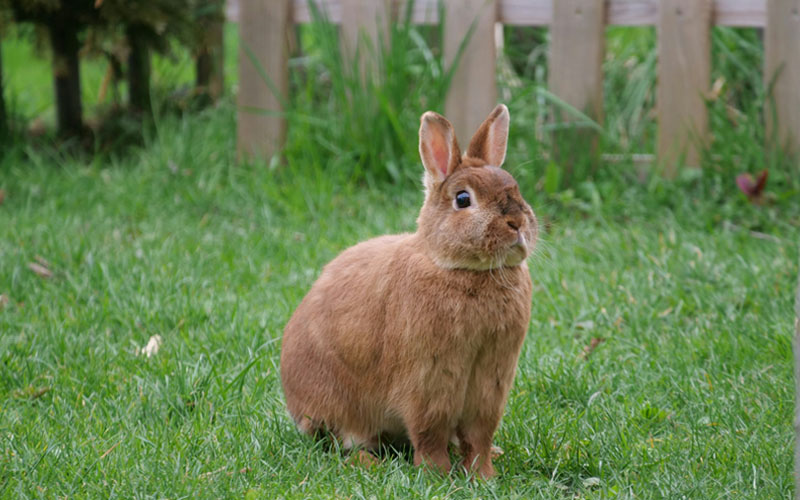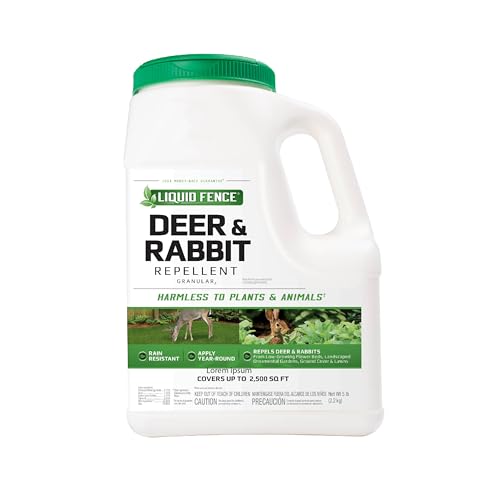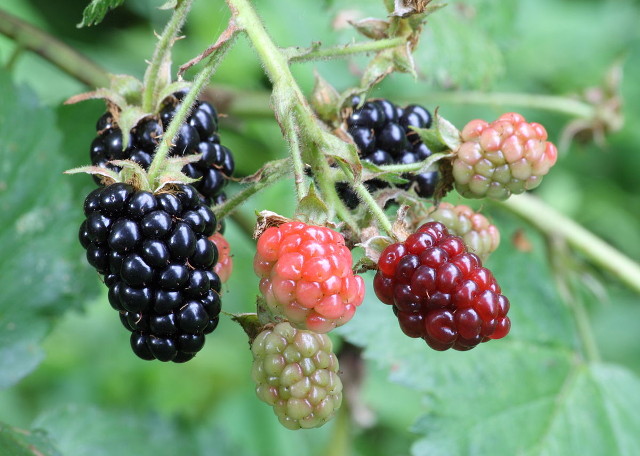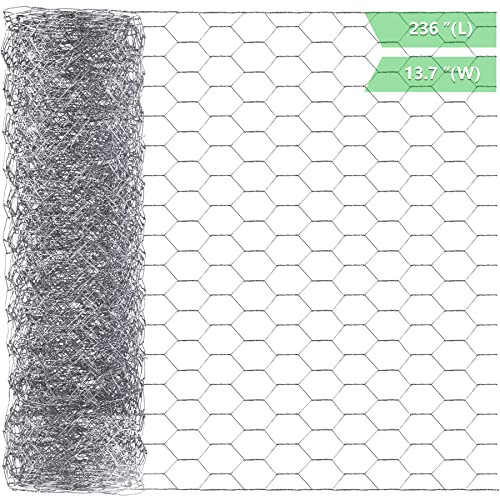How To Keep Rabbits Out Of The Garden?
To keep pesky rabbits out of your garden, create a barrier by fencing the area with sturdy wire mesh. Install it at least 2 feet high and bury a few inches underground to deter burrowing. Surround vulnerable plants with chicken wire or plastic netting, securing them firmly to prevent nibbling. Apply natural deterrents like cayenne pepper or garlic powder on plants, as rabbits dislike the taste.
Regularly inspect and mend any gaps or holes in the fencing to maintain its effectiveness. Additionally, remove enticing food sources around the garden to discourage them. By taking these simple steps guide on how to keep rabbits out of the garden, you’ll safeguard your garden from furry invaders.
What Attracts Rabbits to Gardens?

Rabbits are drawn to gardens primarily for the abundance of tasty plants and vegetables. Their keen sense of smell helps them locate delectable treats like carrots, lettuce, and tender shoots. These furry foragers are enticed by the lush vegetation, finding a variety of textures and flavors appealing. Gardens provide an ideal habitat for rabbits, offering both shelter and a diverse menu. Additionally, the presence of low-lying plants and shrubs provides convenient hiding spots, allowing them to stay vigilant for predators. The combination of savory snacks and a safe environment makes gardens an irresistible destination for these curious creatures.
Signs of Rabbit Infestation
Signs of a rabbit infestation can vary depending on the context, such as whether you are dealing with wild rabbits causing issues in your garden or domestic rabbits that have become a nuisance. Here are some general signs to look for:
- Visible Damage: Rabbits may cause damage to plants, crops, and garden areas by nibbling on leaves, stems, and bark. Check for signs of gnawed or eaten vegetation.
- Burrows and Nests: Wild rabbits create burrows, often near vegetation or hidden areas. Look for small holes in the ground, typically surrounded by disturbed soil or rabbit droppings. Domestic rabbits may create nests in secluded corners if they have access to your property.
- Droppings: Rabbit droppings are typically small, round pellets. The presence of these droppings in and around your property can indicate a rabbit infestation. Wild rabbit droppings are usually smaller than those of domestic rabbits.
- Chewed Objects: Rabbits have a natural instinct to chew, so look for evidence of chewed wires, fences, or other objects. This behavior is common in both wild and domestic rabbits.
- Tracks: Rabbit footprints can be identified by their distinctive shape, featuring long hind feet and smaller front feet. Check for tracks in muddy or soft soil.
- Gnawed Bark: Wild rabbits may gnaw on the bark of young trees and shrubs, causing damage. Inspect the lower portions of vegetation for signs of chewing.
- Garden Damage: If you have a vegetable or flower garden, check for signs of damage such as missing plants, chewed leaves, or other disturbances.
- Behavioral Signs: If you observe rabbits frequently in the area, especially during early morning or late afternoon, it could be an indication of an infestation.
- Presence of Nests or Young: In the case of wild rabbits, the discovery of nests or baby rabbits (kits) may suggest an infestation. Be cautious when approaching, as the mother rabbit may be nearby.
How to Keep Bunnies Out of the Garden?
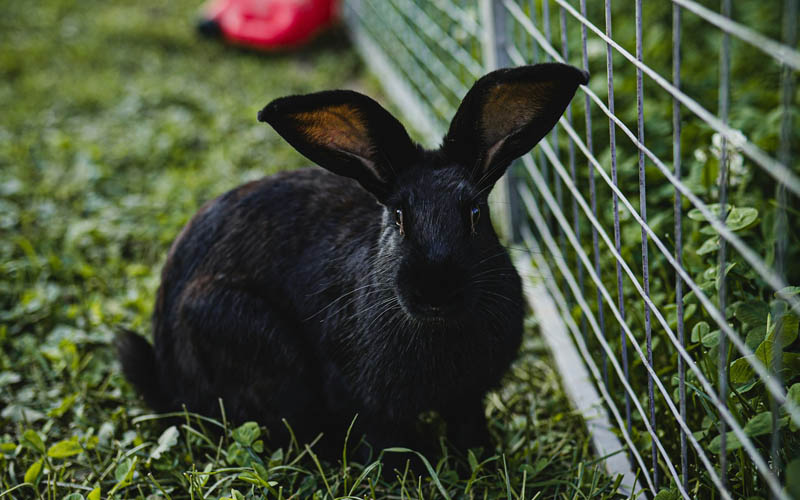
Introduction: Rabbits can wreak havoc in your garden, munching on your prized plants and vegetables. To protect your garden from these furry intruders, you need effective strategies. Here are 10 methods on how to keep rabbits out of your yard, ensuring your plants thrive undisturbed.
1. Install a Rabbit-Proof Fence
Erecting a rabbit-proof fence is one of the most reliable ways to keep these critters at bay. Opt for a sturdy fence with small openings, no larger than 1 inch, to prevent rabbits from squeezing through. Make sure the fence is at least 2 feet tall and extends a few inches below ground to deter digging. Regularly inspect and repair any damage to maintain its effectiveness.
2. Use Natural Repellents
Embrace the power of natural repellents to discourage rabbits from entering your garden. Spread a layer of cayenne pepper, garlic powder, or coffee grounds around your plants. These strong-smelling substances act as a deterrent without harming your plants. Reapply after rain or watering, as these natural repellents may wash away over time.
3. Utilize Physical Barriers
Create physical barriers around your plants using items like chicken wire or hardware cloth. Construct cylinders around individual plants or wrap the material around the garden perimeter. Ensure the barrier extends above and below ground to prevent rabbits from jumping over or burrowing underneath. This method provides a protective shield for your plants while maintaining good air circulation.
4. Grow Rabbit-Resistant Plants
Opt for plants that rabbits find less appealing. Include varieties like marigolds, lavender, or rosemary in your garden, as these plants are known to be less attractive to rabbits. By strategically planting rabbit-resistant species, you create a less inviting environment for these critters, reducing the likelihood of them munching on your prized vegetation.
5. Apply Commercial Repellents
Explore the market for commercial rabbit repellents that are safe for both your plants and the environment. These repellents often contain natural ingredients like predator urine or hot pepper extract. Follow the product instructions for application, ensuring you cover your plants thoroughly. Reapply as directed to maintain a protective barrier against rabbits.
6. Implement Raised Beds
Consider adopting raised beds in your garden as a strategic defense against rabbits. Elevating your plants makes it more challenging for rabbits to reach them, acting as a natural deterrent. Construct raised beds with materials like cedar or redwood, which are less attractive to rabbits, and enjoy the added benefit of improved drainage and soil quality.
7. Create Distractions
Distract rabbits from your prized plants by offering them alternative sources of food. Plant a separate patch of clover or other rabbit-friendly vegetation away from your main garden. By providing an enticing food source elsewhere, you may redirect the rabbits’ attention, reducing their interest in your cherished plants.
8. Implement Motion-Activated Sprinklers
Install motion-activated sprinklers in your garden to startle and deter rabbits. These devices use sensors to detect movement and unleash a burst of water, creating an unwelcome surprise for any furry intruders. This humane method not only protects your garden but also provides an entertaining and effective solution to keep rabbits at bay.
9. Regularly Remove Debris and Hiding Spots
Rabbits seek shelter in tall grass, brush piles, and other debris. Keep your garden clean and free of hiding spots by regularly removing clutter and trimming overgrown vegetation. A well-maintained garden is less attractive to rabbits, as it minimizes their opportunities to find shelter and makes them more vulnerable to predators.
10. Employ Scare Tactics
Integrate scare tactics to discourage rabbits from entering your garden. Place objects that move in the wind, such as pinwheels or aluminum foil strips, to create a dynamic and unpredictable environment. Additionally, consider installing scarecrows or lifelike decoy predators to instill fear in rabbits, making them think twice before venturing into your garden.
How to Keep Rabbits Out of Garden Without a Fence?
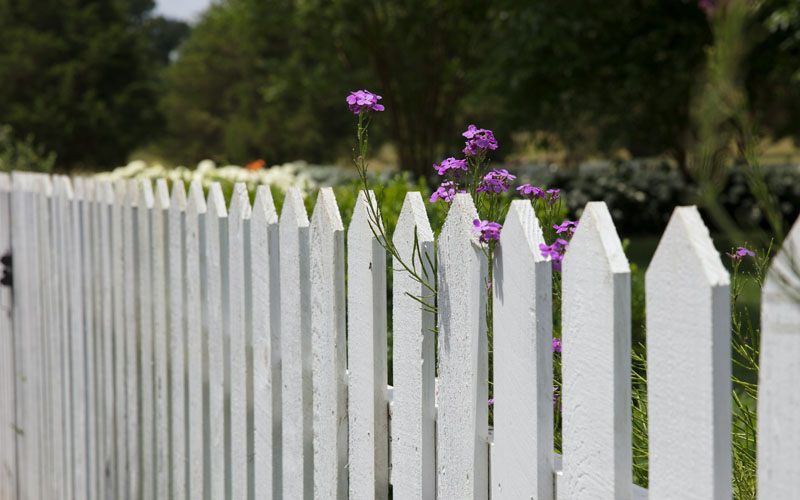
To deter rabbits from munching on your garden goodies without resorting to a fence, try these simple tactics. Scatter strong-smelling spices like cayenne pepper or garlic powder around plants; bunnies dislike the pungent aroma. Plant rabbit-resistant flowers and herbs like marigolds or lavender, acting as natural repellents. Introduce barriers like rocks or mulch around your plants, making it less enticing for rabbits to venture near. Regularly inspect and eliminate potential hiding spots, like tall grass or dense shrubbery, to discourage their presence. Lastly, place motion-activated devices or decoy predators like fake owls to startle and dissuade furry intruders.
How to Keep Rabbits Out of Garden Naturally?
Create barriers like chicken wire fencing to keep rabbits out of your garden naturally. Scatter strong-smelling substances like garlic, pepper flakes, or cayenne pepper around the garden as a deterrent. Plant rabbit-resistant plants such as marigolds or lavender to make your garden less appealing to them. Regularly inspect and repair any gaps or holes in existing fencing. Additionally, maintain a tidy garden by removing hiding spots and debris where rabbits may seek shelter. These simple, natural steps will help protect your garden from furry intruders without resorting to harmful chemicals or traps.
How to Keep Rabbits Out of Garden Home Remedies?
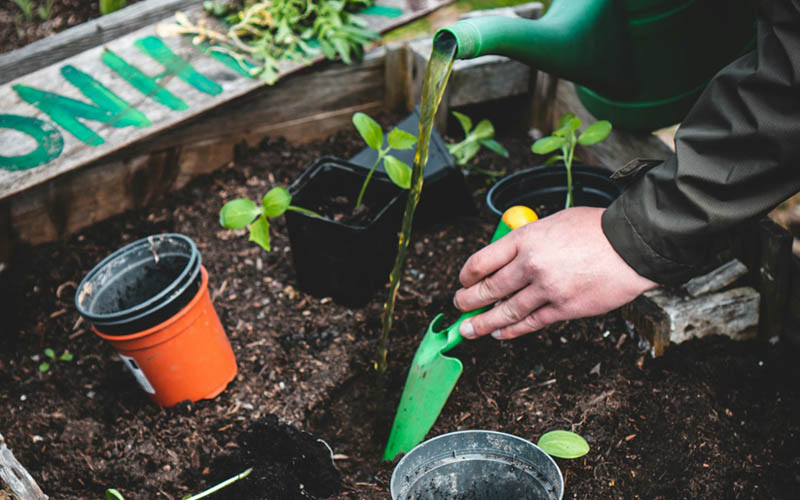
Applying easy Homemade remedies, such as cayenne pepper or garlic powder around your plants, will act as a natural deterrent to keep bunnies away from your garden. Planting strong-smelling herbs like mint and rosemary can also discourage them. Secure your garden with a fence made of chicken wire, ensuring it’s at least two feet high and buried a few inches underground to prevent burrowing. Additionally, consider placing containers of predator urine, like fox or coyote, near the garden perimeter. These odor-based strategies should help keep those garden-loving rabbits at bay without harming your plants.
Plants That Are Rabbit-Resistant
A table of Rabbit-resistant plants:
| Plant Name | Type | Sun Exposure | Soil Type | Height | Blooming Season | Other Characteristics |
|---|---|---|---|---|---|---|
| Lavender | Perennial | Full sun | Well-drained | 12-24 inches | Spring to Summer | Fragrant, Drought-tolerant |
| Marigold | Annual/Perennial | Full sun to part | Well-drained | 6-36 inches | Spring to Fall | Repels insects, Colorful blooms |
| Catmint (Nepeta) | Perennial | Full sun to part | Well-drained | 12-36 inches | Spring to Fall | Drought-tolerant, Aromatic |
| Barberry | Shrub | Full sun to part | Well-drained | 1-6 feet | Spring to Fall | Thorny, Colorful foliage |
| Bleeding Heart | Perennial | Part shade to full | Moist, well-drained | 12-36 inches | Spring | Shade-tolerant, Unique blooms |
| Yarrow | Perennial | Full sun | Well-drained | 12-36 inches | Spring to Fall | Drought-tolerant, Deer-resistant |
| Russian Sage (Perovskia) | Perennial | Full sun | Well-drained | 24-48 inches | Summer to Fall | Drought-tolerant, Aromatic |
| Daffodils | Bulb | Full sun to part | Well-drained | 6-24 inches | Spring | Toxic to animals |
| Foxglove | Biennial/Perennial | Part shade | Moist, well-drained | 24-48 inches | Spring to Summer | Toxic, Tall spikes of flowers |
FAQ
The most budget-friendly method to keep rabbits out of your garden is to install chicken wire fencing. Create a barrier by securing the wire around the garden perimeter. This cost-effective solution prevents rabbits from nibbling on your plants and veggies, ensuring a flourishing garden without breaking the bank.
To deter rabbits from munching on your plants, try using strong-smelling substances like garlic, peppermint, or hot pepper spray. These scents repel rabbits and make your garden less tempting for them. Applying these natural deterrents around your plants creates an unpleasant environment for rabbits, helping to protect your garden from their nibbling habits.
Rabbits typically dislike plants with strong scents or prickly textures. Examples include marigolds, lavender, and thorny bushes like roses. These plants act as natural deterrents, discouraging rabbits from munching on your garden greens. Choosing these varieties can help protect your plants and keep the furry intruders at bay.
Trapping and relocating rabbits may be subject to local wildlife regulations. It’s crucial to check your area’s laws before taking any action. Some places require permits, while others prohibit the relocation of certain species. Always abide by these rules to ensure you’re acting within the law and preserving the well-being of the animals and the environment.

